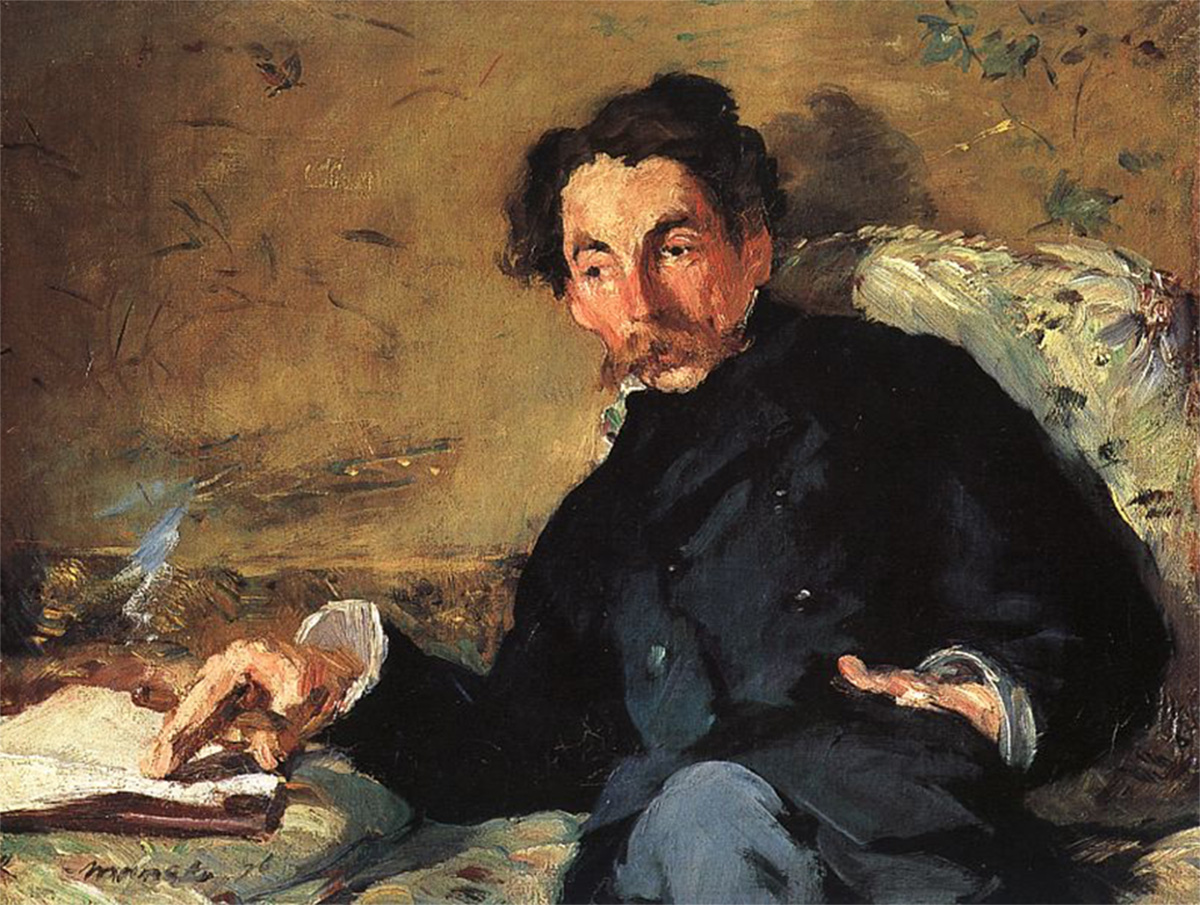Bertrand Marchal discusses why Mallarmé wanted to make poetry so difficult for readers to understand
At the age of 20, Mallarmé wrote a piece in the magazine L’Artiste. It was titled ‘Hérésie artistique: l’art pour tous’, which translates as ‘Art for all — an artistic heresy’. What was Mallarmé complaining about? Unlike musicians, he said, who are protected by the esoteric language of music – not everyone can read a score – poets use ordinary language, and they are therefore exposed to criticism from the average citizen, who can claim to be able to pass judgement on poetry simply because they have learned to read at school. Mallarmé fully believed in the elitism of poetry. He said “Man may be a democrat, but the artist must be an aristocrat”. But this alone doesn’t explain why Mallarmé’s writing is so obscure. Why is it so difficult to understand him? It’s all to do with Mallarmé’s understanding of the mystery of letters. When we read we unravel meaning from a text, using skills we have learned at school. But the problem with this standard way of deriving meaning is that the more readable a text is, the less visible it is.
What is the visibility of a text? It is the consciousness it provokes in us of written script, the awareness we have when, for example, we are tasked with reading a foreign language which we don’t understand: the awareness that a piece of script is little black-on-white patterns, where it is not obvious that it produces meaning. We feel what Mallarmé calls “a mystery in letters”. From the twenty or so letters of the alphabet we have been able to produce all the languages that are spoken (in the Indo-European world), and with them, the multitude of representations, myths, and intellectual constructions. All this is based on twenty or so small signs.

If we are not conscious of this profound mystery of letters, we are stuck with the idea – obviously false – of the transparency of language. This is something we which we demand – if we do not understand a text, we protest. But the more transparent language is, the less we are aware of it, and consequently the more we are fooled by it. Because language is anything but transparent. It is an illusion, a constructed illusion, a lure. It is not simply an instrument of communication. It is what allows us to produce meaning, the capacity to signify, that is the unique characteristic of humans, and allows the creation of gods and souls. This is Mallarmé’s understanding of the mystery of letters.
The work of the reader
Mallarmé does not rely on teachers of the future to explain his poetry. The reader has the right to close the book if, to him or her ,”it means nothing”. If you want to get beyond the dislike that a text deemed impenetrable can produce, you have to ask yourself what it is to read, what the act of reading represents, what it consists of. This is a question you don’t ask yourself when you read a newspaper or a beach novel or even a novel by Zola (who Mallarmé recognised a great poet) because a first meaning is immediately produced. But in front of a Mallarmé poem, especially the later poems, you may not understand or perceive anything. Reflexive reading, which you acquired at school, is of no help to you; you must acquire a second reading skill when meaning is no longer self-evident – this is reflective reading.
There are two major processes in Mallarméan writing that oblige you to do this. The first is the ellipsis – the omission of what we might call the ‘soft’ parts of speech. For example, Mallarmé eliminates the verb and brings the subject and predicate together. It is up to the reader to do the work of reconstructing the relationship that exists between these two elements. So the reader becomes aware that reading is always about finding connections and establishing relationships between words. When we use the syntax of common language, this subject-verb-complement connection is almost automatic, we find our way around without needing to think. But when this order is disrupted, when there are ellipses, it is up to us, the readers, to construct the meaning: reading, in this sense, is a construction. It is also a construction when we read the newspaper but we are not aware of it. With Mallarmé, if we want to access something that has significance, we are obliged to go through a self-conscious construction.
The second process is the “incidental”. Mallarmé increases the space between two words that are closely related in the sentence – the subject and the verb, for example, or the noun and the adjective – by inserting incidental propositions, forcing the reader to maintain an acute awareness of the syntactic logic of the sentence in order to follow the thread. This meaning is no longer held out to the reader, like Ariadne’s thread for finding the way through the labyrinth. One must find it and unravel it, even though it may be invisible.
Not wanting to understand
But this reflective work that I have just described shouldn’t make us forget what is essential to get into poetry, and Mallarmé’s poetry in particular. To understand it, we must first not necessarily want to understand it, in the sense of its intelligibility, but to experience it as a genuine pleasure, purely sensual, musical and physical. The awareness of words begins there. Degas complained to Mallarmé that he was unable to write poems even though, he said, he had “lots of ideas”. According to Paul Valéry, who recounts the anecdote in Degas danse dessin, Mallarmé replied: “But my dear Degas, poems are not made with ideas, but with words”.
So Mallarmé believed in the primacy of words. He famously said: “pure art involves the disappearance of the intention of the poet, who hands over the initiative to the words”. This does not entail automatic writing, but rather the need to work with the very matter of words and to be aware that they constitute our language. Starting from this point, we can see, for example, the mismatch between words and things, between language and reality. This is what Mallarmé calls “the failure of language”. And poetry aims precisely, as he says, to “philosophically compensate for this defect in languages”. Then comes the joy of words.
This article is translated and republished from The Conversation under a Creative Commons licence. Read the original article (in French).

